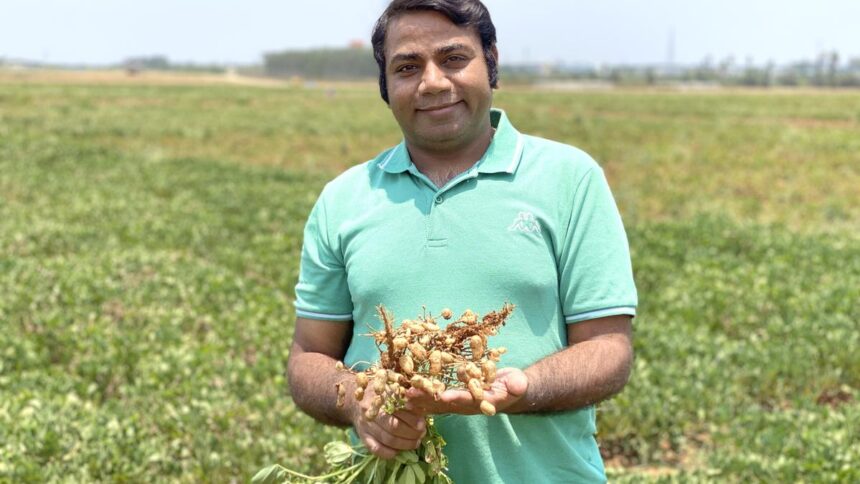A Team of Researchers from Australia and China Unveils Genetic Key to Higher-Yielding Peanut Varieties
A team of 19 researchers from Australia and China has unlocked the genetic key to developing higher-yielding varieties of peanut, a major food and oilseed crop in India. Their pan-genome analysis, published in the latest edition of Nature Genetics, reveals the structural variation associated with seed size and weight traits in peanut.
The researchers from Murdoch University, Henan Agricultural University, Shanghai Jiao Tong University, and the Shandong Academy of Agricultural Sciences assembled a pan-genome of peanut expected to serve as a fundamental resource for the genetic enhancement of legume crops.
The study marks three Chinese lead authors—Kunkun Zhao, Hongzhang Xue, and Guowei Li—as equal contributors. Among its other authors are Annapurna Chitikineni and Rajeev K. Varshney from Murdoch University.
The researchers studied the genome-wide diversity of 269 peanut accessions, including 61 wild species, landraces, and improved species. They found significant genomic variations and highlighted two of the most critical traits that affect peanut yield: seed size and weight.
Tracing the evolution of domesticated peanut varieties from their wild relatives, the researchers discovered that the gene likely responsible for regulating cell division and yield size was absent in all the wild species analyzed.
The study offers the most comprehensive genomic variation resource of the globally important peanut and will be an invaluable tool for crop breeding efforts, according to Prof. Varshney.
The researchers presented a comprehensive pan-genome analysis, utilising eight high-quality genomes (two diploid wild, two tetraploid wild, and four tetraploid cultivated peanuts) and resequencing data of 269 accessions with diverse seed sizes.
They identified 1,335 domestication-related [structural variations] and 190 structural variations associated with seed size or weight. Their study revealed that structural variations could influence gene expression, functional dynamics, and uneven domestication between two sub-genomes, ultimately affecting seed size and weight.
The most notable part of the study was the deletion of the AhARF2-2 gene, which results in the loss of two other genes, reducing the inhibitory effect on a third and promoting seed expansion.
The researchers said structural variations, along with single-nucleotide polymorphism and epigenetic differences, are emerging as important variation features contributing to the genetic and phenotypic diversity observed in and between species. Understanding the impact of structural variations on plant phenotypic variation is crucial for breeders aiming to develop superior cultivars.
The comprehensive peanut pan-genomes they developed resulted in an extensive resource of genomic variations that contribute to key agronomic traits in peanuts. The study said these will facilitate advancements in crop science and peanut breeding, thereby potentially improving global food security.
What makes this research especially exciting is that it offers new information that can be applied to numerous crops of economic importance, such as cotton and rapeseed, according to Peter Davies, the Director of Murdoch Universitys Food Futures Institute.
Reference : https://www.thehindu.com/sci-tech/science/scientists-unlock-genetic-key-to-higher-peanut-yield/article69502180.ece








